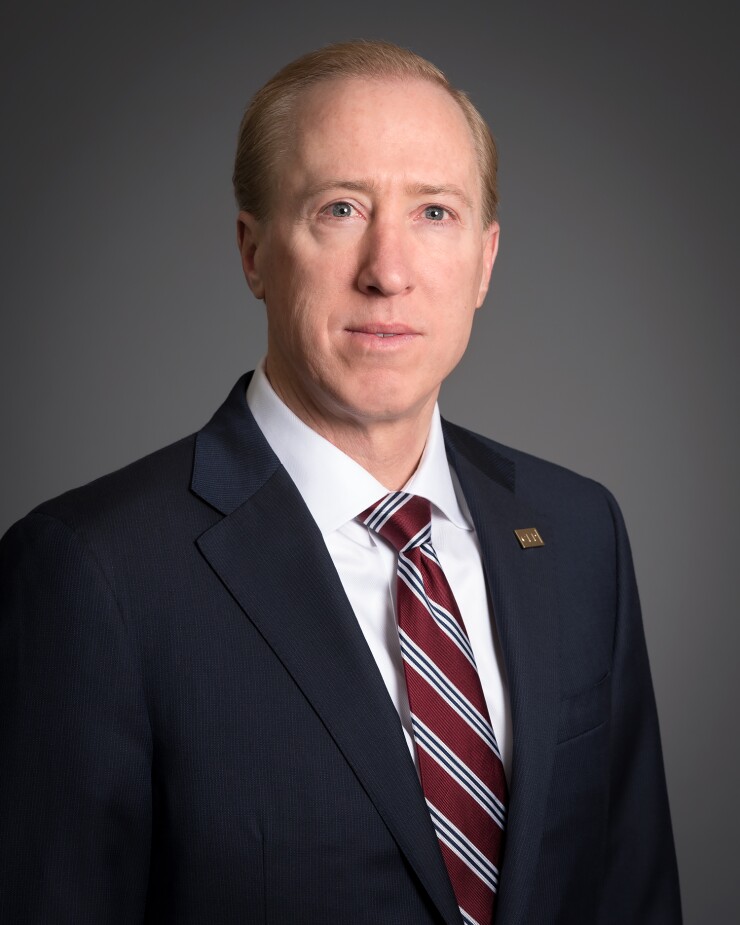In a little over a year, the CFP Board plans to ramp up its compliance efforts as it begins to enforce its new code of ethics and standards of conduct, the group's new chairman-elect says.
Jack Brod, a retired Vanguard executive,
"I think it's natural to assume that the emphasis will shift into ensuring that CFP certificants are in fact complying so that we can uphold the integrity of the CFP marks," Brod says in an interview. "I think it will become an increasing focus of the staff — not to the exclusion of many important things that happen at the CFP Board, but we certainly want to be sure that we're able to uphold these standards."

The central pillar of the new standards will be the expectation that CFPs act as fiduciaries at all times when providing clients with financial advice.
In the interim, the CFP Board is in outreach mode, with officials talking up the new standards on the road and preparing new guidance to help ensure that CFPs and their firms have a chance to understand the framework and put it into practice by the October 2019 implementation date.
"We're trying our very best to be deliberate so that firms and CFP professionals will have every opportunity to fully digest and be prepared," says Brod, who currently serves as a member of the CFP Board's board of directors. "It's one of the reasons why we've been very considerate about the lead time and choosing an effective date that's well beyond the time the standards were introduced."
New proposals in seven states could soon subject over half of all U.S. millionaires to targeted high-earner tax rates.
Travis Hodges serves as Managing Director of Omnichannel Sales and Services at VIU by HUB, an omnichannel personal insurance brokerage platform. In this role, Hodges is responsible for leading Contact Centers, Claims, Service, Sales, Retention, and Multiple Distribution Channels for VIU by HUB.
With experience in P&C Sales at Nationwide, Hodges helped grow a $750M portfolio that includes Personal and Commercial Lines and was leader of a multi-site, multi-functional organization with P/L responsibility.
Amid UBS advisor exits, 25-year veteran joins Morgan Stanley
But with that long lead time and concerted outreach effort, the CFP Board is expecting its certificants to comply with the new standards from the outset. Already, the board is looking to hire an attorney for the new position of compliance counsel, and that likely won't be the last hire in the compliance department ahead of the new ethics and standards.
Brod sees the uptick in compliance oversight — and potential disciplinary actions for violations — as a byproduct both of the new standards and the steady increase in the number of advisors who obtain the CFP certification.
He also notes that the board currently operates a rigorous compliance program, and says the overarching mission of his chairmanship will be to advance the strategic initiatives the CFP Board has identified as the four A's: promoting awareness of the designation, access to financial planning and the board's authority and accountability.
"I suspect that the emphasis will shift going into 2020 on one of those four A's, which is accountability. And part of what falls under accountability is ensuring that CFP certificants comply with these new standards," Brod says. "That's an example of how the emphasis shifts on an ongoing basis, related to the longer-term strategic priorities."
The effort to revamp the CFP Board's standards, which formally began in December 2015, has come under fire from critics on both sides. Staunch fiduciary advocates would like to see the standards go further and require CFPs to mitigate or eliminate more conflicts. Meanwhile, some industry groups have expressed concern that the standards will box in certain types of business models, such as the brokerage sector, whose members
To Brod, that's par for the course.
"In my experience ... in working with standards of conduct and code of ethics, it won't be uncommon for some to feel you've gone too far and others to feel that you haven't gone far enough," Brod says. "We're guided by our mission to serve the public, and we were very careful to listen to all constituents and all perspectives and all opinions."
An eye toward diversity: For the foreseeable future, the CFP Board will also remain focused on its efforts to promote diversity in the planning profession.
Brod acknowledges that that campaign has been slow to deliver results, not unlike similar diversity initiatives that he recalls from his days in the private sector.
"It is a journey, and it is something that doesn't change overnight," Brod says. "It never seems to change or evolve at the pace that you would like it to."
Indeed, the proportion of women who hold the CFP certification has
"I think we're starting to see some encouraging signs, based on the makeup of at least the gender diversity in the folks that are taking examinations."
"I think we're starting to see some encouraging signs, based on the makeup of at least the gender diversity in the folks that are taking examinations," he says. "When we look at what I'll call the leading indicators, we're seeing some positive momentum building in the direction we want to head."








